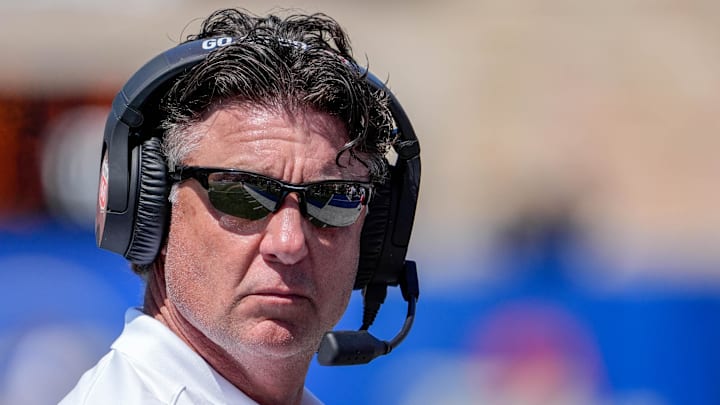Legendary Coach Gives Candid Thoughts About Oklahoma State NIL Situation

Oklahoma State Cowboys head coach Mike Gundy recently discussed the challenges his program faces in the evolving landscape of college athletics, particularly with the advent of Name, Image, and Likeness (NIL) deals. Gundy's candid press conference remarks shed light on the financial disparities becoming increasingly evident among college programs, especially in recruiting.
Gundy highlighted the impact of the Transfer Portal and NIL on player movement, noting that these changes have made it easier for players to switch schools, thereby exposing the resource gaps between programs. "Some teams are heavily investing in NIL, making it difficult for Oklahoma State to compete for top players," Gundy stated.
One of Gundy's most striking points was about the significant sums some schools are willing to offer just for official visits. "There are teams offering $300,000 just for a visit," he revealed, tangibly displaying the financial muscle that some programs wield. He also pointed out that Ohio State reportedly invested $20 million into their roster through NIL and transfers, a figure that dwarfs what Oklahoma State can afford.
Gundy also touched on the contentious issue of revenue sharing, expressing concerns about the House Settlement that would allow for it but is currently facing legal challenges. He warned that without revenue sharing, the financial disparities between schools could grow, leading to a lack of parity in college athletics. "The financial disparities could lead to significant imbalances in college sports," he cautioned.
Despite these challenges, Oklahoma State has been proactive in its NIL efforts. The program even attempted to use QR codes on helmets linked to their Pokes With A Purpose NIL collective, a move that the NCAA blocked. "The NCAA threatened lawsuits for players who wore the QR codes," Gundy shared, highlighting the significant regulatory hurdles they face.
In terms of recruiting, Gundy emphasized the need for resourcefulness. He referenced the recruitment of Division II transfer Obi Ezeigbo, noting that he was affordable and had potential for development. "We have to be resourceful with our NIL funds, distributing money across the roster rather than making large investments in individual players," Gundy explained.
Looking ahead, Gundy expressed concerns about the long-term impact of unequal NIL spending. He compared it to stock market investments, where larger investments yield greater returns over time. "If a few schools continue to invest heavily in NIL, it could lead to significant disparities and a lack of competitive balance in college sports," he warned.
